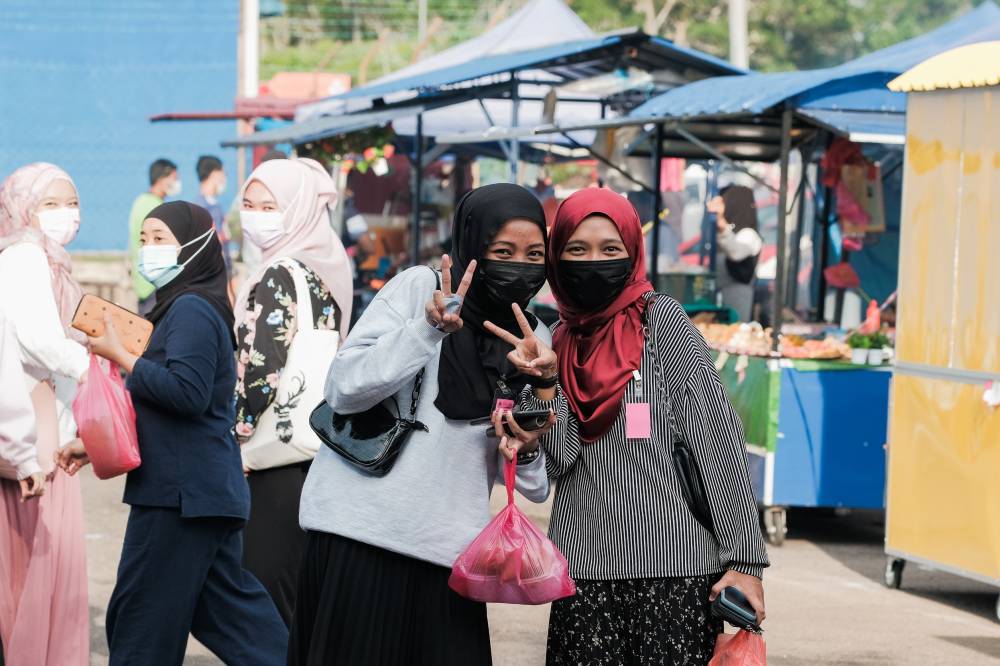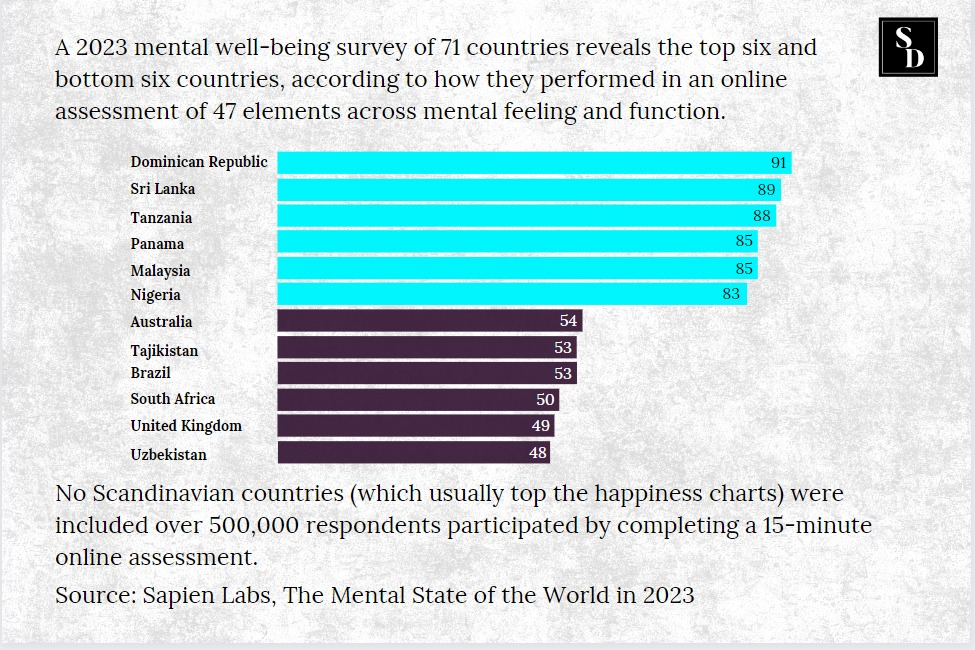Malaysian's mental state is fifth happiest in the world, while the UK is second unhappiest

SHAH ALAM - Malaysia ranked fifth as the happiest country in the world according to fourth Annual Mental State of the World Report by Sapien Labs, while our former colonial masters United Kingdom is the second most unhappiest country after Uzbekistan.
Dominican Republic tops the list as the happiest country in the world followed by Sri Lanka in second, third is Tanzania and ahead of Malaysia is Panama at fourth.
Nigeria comes in at sixth followed by South and Central American countries (7) Venezuela, (8) El Salvador, (9) Costa Rica and Uruguay finishes the top 10.
Meanwhile, bogged down by human rights and freedom of expression issues claims, Uzbekistan tops the charts for the unhappiest country followed by the Brits. South Africa comes in third, followed by (4) Brazil, (5) Tajikistan and the land down under, Australia, at sixth.
Egypt ranks seventh in the unhappy list followed by Ireland, while war-torn countries Iraq at ninth and Yemen completes the tenth spot on the list.
The Sapiens Labs report, released on March 4, is a global study which looks at trends and insights in the mental wellbeing of 419,175 Internet-enabled participants across 71 countries.

The key trend from this year’s data, which was conducted last year, is the dramatic decline in mental wellbeing that took place between 2019 and 2020, and continued into 2021 through the Covid-19 pandemic that now continues to persist with no sign of recovery.
Sapien Labs stated that the assessment aims to find an individual’s Mental Health Quotient (MHQ), which evaluates 47 aspects of mental health, in six main categories: mood and outlook, social self, drive and motivation, mind-body connection, cognition and adaptability and resilience.
The survey also collected information on people’s lifestyle, dynamics with family and friends, and personal traumas. Based on their responses, people were given a score and placed on a spectrum, from thriving to distressed.
This Global Mind project aligns with the World Health Organisation (WHO) definition of mental wellbeing which is broadly the ability of an individual to handle the normal stresses and adversities of life and contribute productively to society. The project therefore does not inform on traditional views of happiness or life satisfaction but rather provides a more comprehensive and economically relevant perspective across the breadth of emotional, social and cognitive capabilities.
For one person this may mean being able to carry out a particular type of knowledge work, while for another it may mean managing a household or performing physical labor. Furthermore, each person will have in their own mind what appropriate functioning looks like.
Thus, mental wellbeing, based on Sapien Labs measure measurement is inherently reflecting an individual’s sense of how their inner state impacts their ability to function within their life context rather than an absolute of human mental function.
Other highlights from the report include:
- Younger generations, particularly those under age 35, saw the steepest declines in mental wellbeing during the Covid-19 pandemic while those over 65 stayed steady.
- Two key findings published in Rapid Reports in 2023 show that younger age of first smartphone ownership and ultra-processed food consumption are two major contributors to our mental health challenges
- As in previous years, several African and Latin American countries topped the country rankings, while wealthier countries of the Core Anglosphere such as the United Kingdom and Australia are towards the bottom.















